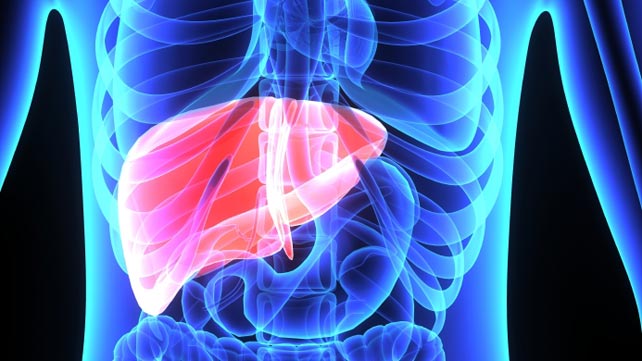The liver is a tough organ that can repair itself after a mild damage, but its capacity for regeneration is limited. Alcoholic hepatitis is the outcome of the liver being agitated and inflamed after a prolonged period of frequently abusing alcohol.
Key ideas
- You ingest alcohol, which is broken down by the liver.
- If you consume more alcohol than your liver can handle or repair, the damage keeps compounding, inflaming and scarring the liver.
- Alcoholic hepatitis causes liver inflammation, which destroys and damages liver cells.
- Alcoholic hepatitis that is severe or acute can develop abruptly and cause liver failure and death.
Once a person develops alcoholic hepatitis, which is an inflammation of the liver that frequently results in liver cell damage and cell death, the hazards of alcohol misuse become very obvious. In reality, untreated alcoholic hepatitis progresses to liver cirrhosis, a late-stage liver disease in which the liver’s capacity to function is severely impaired by liver scarring.
How to Identify the Signs of Long-Term Alcohol Abuse ?
Alcoholic hepatitis is a progressive illness, which means that the effects develop gradually over time.
Given this, many individuals fail to pay attention to the warning indicators. As a result, persons who have this liver condition frequently seek medical attention for their symptoms after significant harm has been done.
In fact, those between the ages of 40 and 60 are the ones who are most frequently diagnosed with this condition.
Typical signs of alcoholic hepatitis
- Lethargy Fatigue
- Having no appetite
- Loss of weight
- Malnutrition
- Nausea
- Fever
- Sensitivity in the stomach
- abdominal swelling
- discomfort around the liver
- spitting up blood
- Confusion/Disorientation
- Skin and/or eye yellowing is referred to as jaundice.
Unfortunately, many alcoholic hepatitis symptoms might mimic those of other medical disorders. It is crucial to always be forthright and honest about your alcohol intake for this reason. For a diagnosis and treatment of alcoholic hepatitis, always visit a doctor.
Does Liver Scarring Have a Cure?
The patient must stop drinking in order for the liver to start mending itself in order to treat alcoholic hepatitis.
It is crucial to remember that severe scarring that develops over a long period of time may become permanent. As a result, the aim of treatment is to manage the existing symptoms while partially or completely restoring the liver to normal functioning.
To be clear, you must quit consuming alcohol if you want to reverse or control the symptoms of this condition. You may also require care in an alcohol addiction treatment program to properly detox from alcohol, as many people with alcoholic hepatitis do who also suffer from alcohol use disorder.
You could be treated as an outpatient or admitted to the hospital, depending on how serious your disease is.
Alcoholic hepatitis cannot be treated with medicine, thus managing symptoms and preventing future liver damage are the main goals of treatment for liver scarring.
Make sure to consult your doctor about any suggested vaccinations. Among these are vaccinations against viruses that might harm the liver.
What Health Effects Can Alcohol Abuse Have?
The liver will continue to be harmed if you drink alcohol in the future. The liver will continue to deteriorate throughout time as a result of health issues that arise.
- Varices – Exaggerated veins that prevent airflow Gallstones
- Ascites is an infection brought on by fluid accumulation in the abdomen.
- Hepatic encephalopathy: When toxins accumulate in the body, it damages the brain.
- Coma
- renal failure
- liver tumor
- Cirrhosis is a serious and frequently deadly liver disease.
Hepatitis C infection, in addition to liver cirrhosis, is prevalent among humans and contributes to the liver’s scarring.
Life Expectancy of Alcoholic Hepatitis
Unfortunately, there is no known treatment for alcoholic hepatitis, and it’s possible that the extensive damage brought on by drinking too much alcohol will never go away. Treatments and procedures therefore try to reduce the symptoms of liver scarring while preventing further harm.
A benign condition, mild alcoholic hepatitis has a very low short-term death rate. However, mortality can be significant if [the condition] is severe enough to result in hepatic encephalopathy, jaundice, or coagulopathy.
Approximately 15% of hospitalized patients with alcoholic hepatitis die within 30 days; however, this figure approaches or exceeds 50% in patients with severe liver impairment. The 30-day death rate for patients without encephalopathy, jaundice, or coagulopathy is less than 5%. According to MedScape, the overall death rate for alcoholic hepatitis one year after admission is about 40%.
The best method to recover from this illness is prevention, even if certain people with life-threatening alcoholic hepatitis may be suitable for a liver transplant. In summary, the irreversible harm caused by alcohol consumption may be avoided by identifying it early and obtaining treatment for a dependency or addiction.
Helpful Resources




